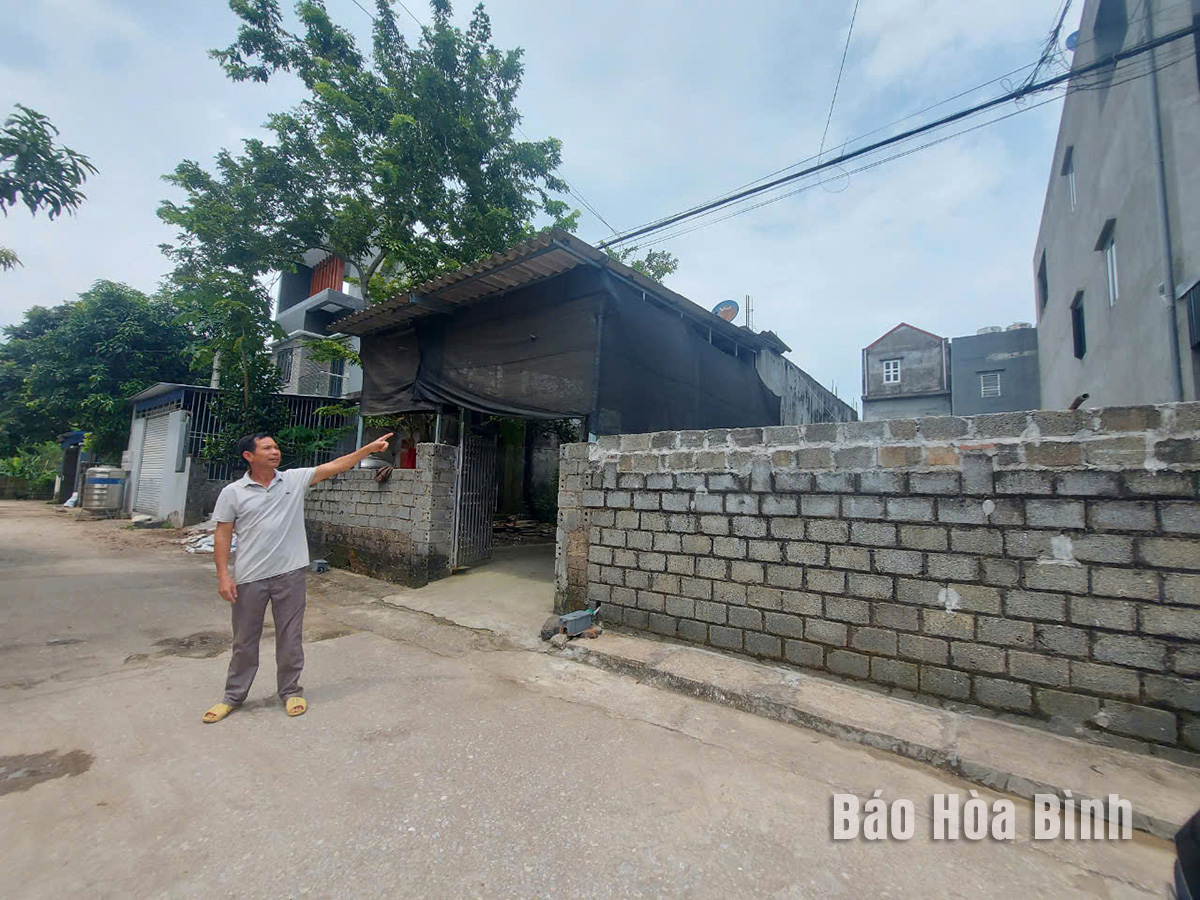
The new-style rural building programme has cast a new look to Vinh Dong commune, Kim Boi district, with transport and irrigation systems, medical stations, and cultural institutions having been developed, tourism projects implemented, and local livelihoods improved.

Rural
infrastructure and life in Vinh Dong commune, Kim Boi district, have been
improved.
According
to Chairman of the communal People’s Committee Bui Van Thang, the commune has
obtained various standout achievements in building new-style rural areas thanks
to its concerted efforts and support resources. The commune mobilised 8.1
billion VND (329,600 USD) in 2023 for the programme, and continues investment
to carry out advanced new-style rural area standards.
The
commune has helped local farmers shift their farming models by creating
favourable conditions for them to access seedlings, breeding animals, capital,
and farming techniques.
Thanks
to the commune’s due attention to improving local cultural and social and
environmental situations, trained workers now account for 74.28% of the labour
force, health insurance now covers 91% of the population, while 70% of the
local households have clean water tanks and hygienic bathrooms and toilet
facilities.
To
date, Vinh Dong commune has fulfilled 16 out of the 19 advanced new-style rural
area standards, including planning, transport, irrigational system,
electricity, schools, agricultural trading facility, culture, environment and
food safety, political system, and defence and security. It
is striving to realise the criteria on health care, poverty alleviation, and
production model.
According
to Chairman of the communal People’s Committee Bui Van Thang, the commune will
pool resources to effectively build and manage a centralised water supply
system, develop environmental production models, and improve local spiritual
and material life.
Besides,
it will develop rural infrastructure in a more modern and harmonious fashion,
step up IT application, promote climate change response, and develop value
chain for local products, among others, he added.
More than just an information technology teacher, Bui Van Nien is an inspiring figure who has nurtured the scientific curiosity and creative spirit of students in Vietnam’s ethnic minority communities.
Da Bac is the most disadvantaged mountainous district in Hoa Binh province, with ethnic minorities accounting for about 90% of its population. Over the past years, the district has mobilised resources to implement ethnic policies to improve the quality of life of local people.
In recent years, Hoa Binh province has consistently prioritised the protection, care, and education of children, particularly those from ethnic minorities and disadvantaged backgrounds, by creating a safe, healthy, and nurturing environment for their all-round development.
The Steering Committee for Tobacco Harm Prevention and Control of Hoa Binh province, in coordination with the Tobacco Harm Prevention and Control Fund, held a ceremony on May 28 in response to the World No Tobacco Day (May 31) and the National No Tobacco Week (from May 25 to 31). The event was chaired by Nguyen Van Toan, Standing Vice Chairman of the provincial People’s Committee and head of the Steering Committee.
Since 2021, the Center for Industrial Promotion and Industrial Development Consulting (CIIDC) under the Department of Industry and Trade has been implementing a school lighting model as part of the plan for using energy efficiently and economically in Hoa Binh Province in the pẻiod of 2021 - 2025. This model not only aims to improve the learning conditions and enhance the education quality, but it also promotes the message of energy saving, energy security, environmental protection and contributes to the goals of socio-economic development.
In the 2024 - 2025 school year, the entire Hoa Binh provincial education sector includes 520 educational institutions and schools. Among them are 13 ethnic boarding schools with 153 classes and 4,487 students. Four of these schools have met national standards, reaching 30.7 percent.



